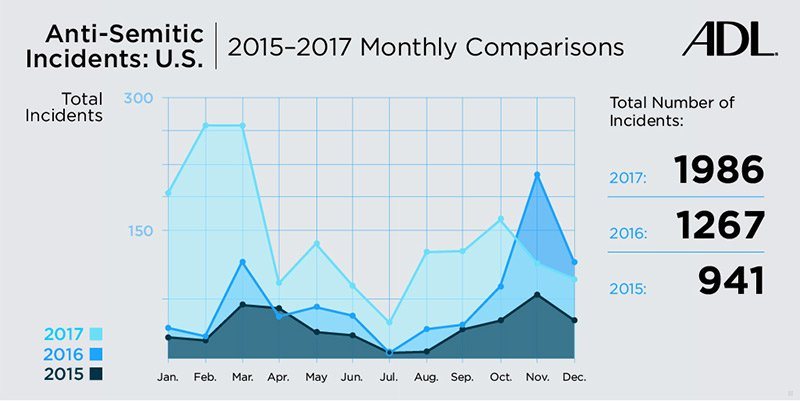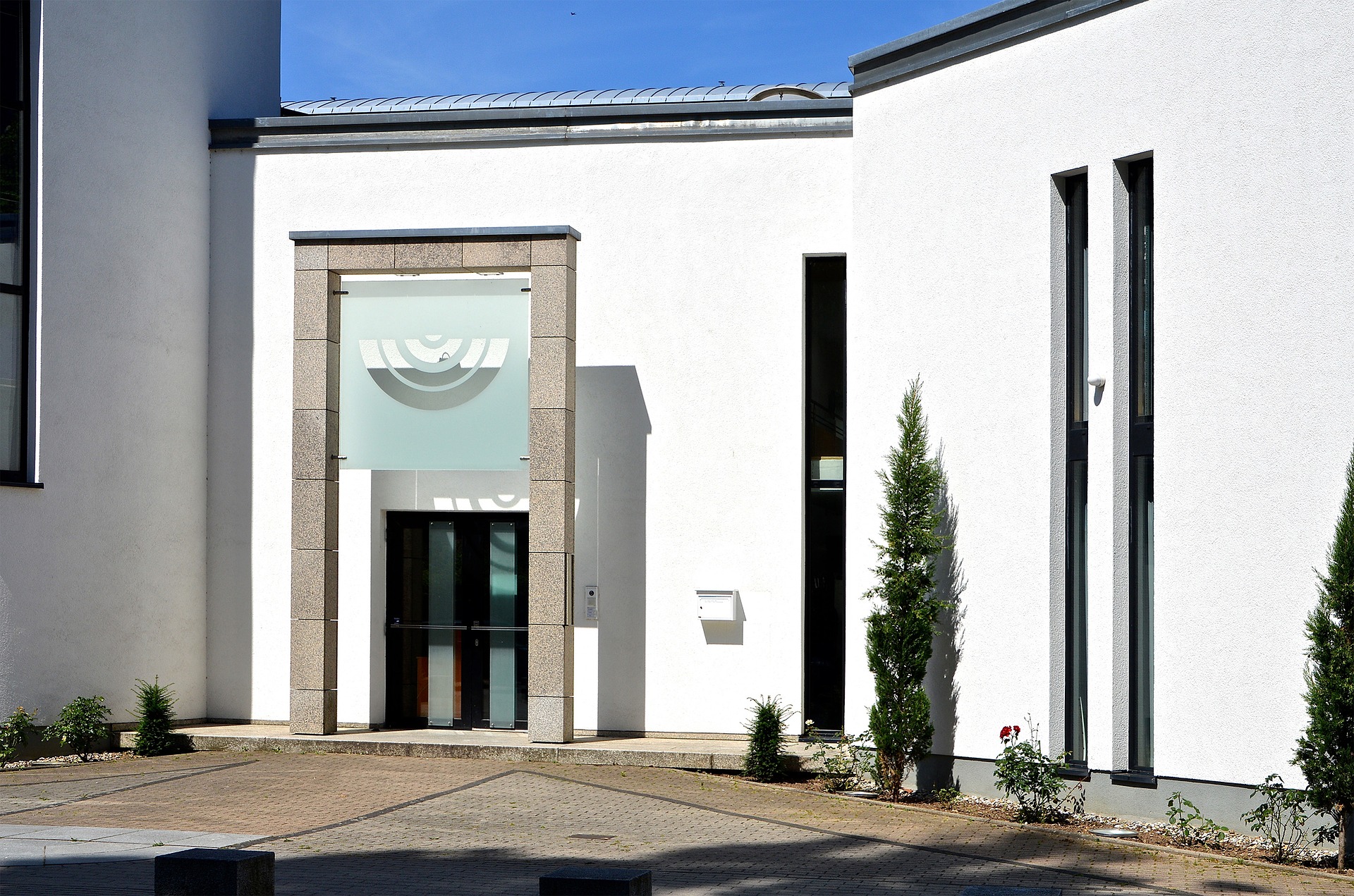After the harrowing events on October 27th, 2018, the discussion around Jewish Community Center security and safety within synagogues has taken on a new sense of urgency.
As Rabbi Joshua Lesser of Congregation Bet Haverim in Atlanta, Georgia, wrote recently on Facebook:
“Violence and terror are so rattling because they are beyond our control. Hate crimes pack a double whammy because not only does it undermine our control, but we feel targeted for who we are. With our children we need to both support them in acting on areas where they do have control of their own safety and feeling connected to who they are. Parenting experts recommend looking at the ways where young children can help protect themselves and pointing that out.”
This is excellent advice for talking to kids about what happened at the Tree of Life Synagogue in Pittsburgh. And it is good advice for the rest of us, too.
Aryeh Tuchman is Associate Director of the Center on Extremism of the Anti-Defamation League (ADL). In a recent online conference with representatives of Jewish organizations nationwide, Tuchman said:
“We don’t want to overreact, and we don’t want to underreact. We want to figure out where to put our resources most effectively to keep ourselves safe.”
Understanding Trends in Hate Crimes
Political rhetoric has heated past the boiling point over the last several years. It has brought with it a startling rebound in hate speech and threats targeting Jews and Jewish institutions.
The most recent report from the FBI indicates that hate crimes increased 17 percent overall in 2017 (for a total of 7,000 incidents of all types against all groups). Roughly 1 in 7 of these crimes targeted Jews or Jewish institutions (already the most frequently targeted religious group in the United States, despite only comprising 1 to 2 percent of the population).
Overall, the FBI tracked a 37% increase in anti-Semitic hate crimes in 2017. According to the ADL’s annual Audit of Anti-Semitic Incidents, this was “the largest single year increase [in anti-Semitic incidents] on record and the second-highest number [of incidents] reported since ADL started tracking such data in 1979.”
Seasonal Patterns in Anti-Jewish Hate Crimes
The ADL has noted specific trends that should inform security planning for Jewish institutions and organizations. Specifically, over the last several years the ADL found that anti-Semitic incidents in the U.S. follow a distinct “double peak” seasonal pattern. Incidents tend to increase in frequency through February, then drop off—bottoming out in the summer months—before peaking in the fall. The highest incidence tends to be in November.
This is both counter-cyclical to most acts of violence in the United States, and counterintuitive to many Jews. According to the U.S. Department of Justice, both violent crime and suicides peak in the spring/summer months. Meanwhile, most Jewish organizations presume that anti-Semitic events are most likely in September or early October, near the High Holidays.

Monthly anti-Semitic incidents in the U.S., 2015–2017 (courtesy of the ADL—source)
Developing Security for Jewish Community Centers
According to Patrick Daly, Deputy Director of the Secure Community Network (SCN), an organization dedicated to safety and security for Jewish communities:
“We live an extremely dynamic, diffuse, and persistent threat environment. …a comprehensive security mindset and posture is critically important …one that is built into our culture, and not just bolted on.”
But there is no reason for groups to feel that they must compromise on being open and welcoming just to stay safe.
Congregations and organizations need to have open, frank, and honest conversations about what security measures are right for their community. For some this will mean a much closer working relationship with law enforcement. For others, it might mean hiring trained and armed security, or empowering some additional safety personnel.
But armed security isn’t a good fit for every situation or every congregation. This is especially the case for those that include or work closely with vulnerable populations, e.g., Jews of color, immigrants, survivors of domestic violence, etc. According to Daly, Masters, and many others who specialize in security and safety in Jewish communities, access control has proven very effective. “Just the access control,” Masters explained, “getting into and out of the building, may very well mitigate the need for armed security.”
Situational Awareness for Jewish Communities: See Something? Say Something!
SCN advises that all congregations and organizations work to improve their situational awareness. This isn’t just among staff and leaders, but throughout the entire congregation and community.
Everyone in your community needs to be encouraged to note their surroundings and communicate about them. See something out of the ordinary? Bring it to the attention of others in your community. See someone who you don’t recognize? Greet them. 99.9% of the time it will be totally innocuous, and you will have helped to make a visitor feel more welcome. If you walk away from that interaction not feeling right, let others know.
Almost every law enforcement agency can arrange for free trainings and security walk-through at your buildings. Local police departments and regional FBI and DHS offices are especially good resources.
Security Resources for Jewish Community Centers and Synagogues
- Many congregations struggle to begin their open, frank, and honest conversations about safety and security. Some have found the community safety pledge prepared by Jews for Racial & Economic Justice to be a good starting point.
- The Anti-Defamation League has many community security resources, as do FEMA and the U.S. Department of Justice. These are especially helpful for Jewish organizations.
- Learning active measures to take in an emergency is an excellent way to help your community regain its equilibrium. Stop the Bleed and FEMA’s You Are the Help Until Help Arrives are excellent programs for teaching life-saving skills.
- Rabbi Lesser’s essay on Facebook is an excellent resource for parents unsure of how to talk with their children about the increasing prevalence of anti-Semitism in their lives. Other excellent resources include Moving Traditions’ Helping Teens in the Wake of Pittsburgh and InterfaithFamily’s Talking to Children About Events in Pittsburgh and Anti-Semitism.



